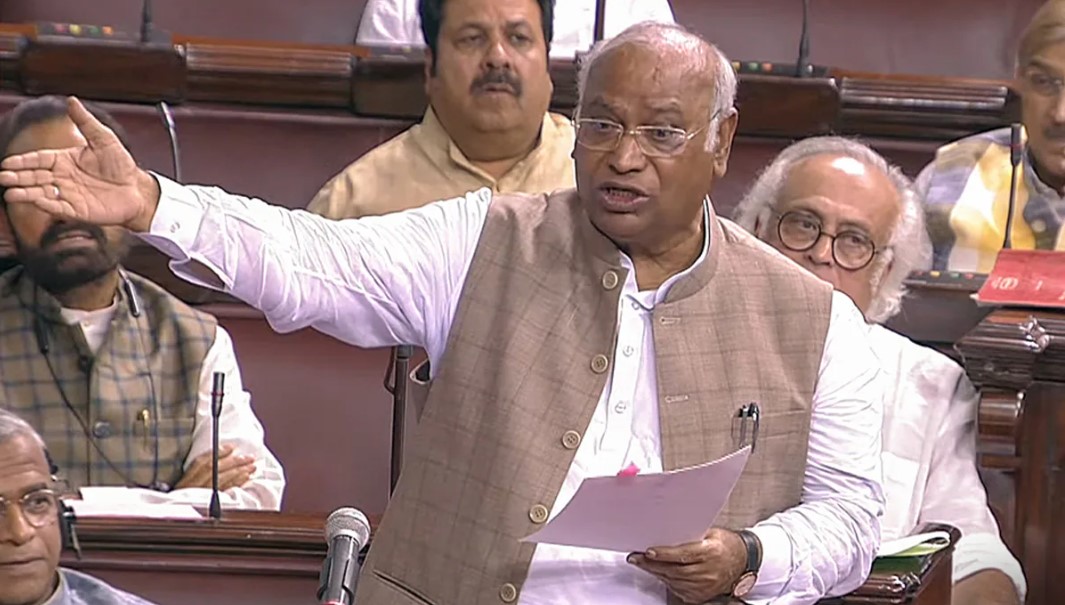
The opposition parties in India have been on a warpath with the government over the issue of parliament rules. The latest flashpoint is the government's decision to introduce the Manipur (Protection of People from Insurgency and Unlawful Activities) Bill, 2023. The bill is seen as a draconian measure that gives the government sweeping powers to detain people in Manipur without trial.
The opposition parties have been protesting against the bill since it was introduced in the Lok Sabha on July 18, 2023. They have accused the government of trying to suppress dissent in Manipur. The government, on the other hand, has defended the bill, saying that it is necessary to protect the people of Manipur from the threat of insurgency.
The latest round of protests by the opposition parties took place on July 20, 2023, when the Rajya Sabha was scheduled to discuss the bill. The opposition parties staged a walkout in protest against the government's decision to introduce the bill. The government was forced to adjourn the Rajya Sabha without taking up the bill for discussion.
The opposition parties have also been critical of the government's handling of the situation in Manipur. They have accused the government of not doing enough to address the root causes of the insurgency in the state. The government has, however, denied these allegations and said that it is committed to peace and development in Manipur.
The standoff between the opposition parties and the government over the Manipur bill is likely to continue. The opposition parties have vowed to continue their protests until the government withdraws the bill. The government, on the other hand, has said that it is willing to discuss the bill with the opposition parties, but only after it is passed by the Rajya Sabha.
The Manipur bill is just one of the many issues that have strained relations between the opposition parties and the government. The two sides have also been at loggerheads over the issue of the Pegasus spyware scandal, the farmers' protests, and the economic slowdown. The standoff between the two sides is likely to continue in the coming months.
Arguments in favor of the bill:
The government says that the bill is necessary to protect the people of Manipur from the threat of insurgency. The bill gives the government sweeping powers to detain people without trial for up to two years. The government argues that this is necessary to prevent insurgents from regrouping and launching attacks on the security forces and civilians.
The government also says that the bill is necessary to maintain law and order in Manipur. The state has been plagued by insurgency for decades, and the government says that the bill is needed to give the security forces the necessary powers to deal with the situation.
Arguments against the bill:
The opposition parties say that the bill is draconian and gives the government too much power. They argue that the bill could be used to suppress dissent and target political opponents.
The opposition parties also say that the bill is unnecessary. They argue that the existing laws are sufficient to deal with the threat of insurgency in Manipur.
The opposition parties have also raised concerns about the bill's impact on human rights in Manipur. They argue that the bill could be used to detain people without trial for prolonged periods of time, which could violate their fundamental rights.
The Manipur bill is a complex issue with no easy answers. The government has legitimate security concerns in Manipur, but the opposition parties are right to be concerned about the bill's impact on human rights. The two sides need to find a way to address both of these concerns if the bill is to be passed into law.
Here are some additional details about the Manipur bill:
The bill defines an "unlawful activity" as any act that is intended to threaten the sovereignty, integrity, or security of India or to disrupt harmony or public order.
The bill gives the government the power to detain any person for up to two years without trial if the government believes that the person is involved in an unlawful activity.
The bill also gives the government the power to search and seize property without a warrant if the government believes that the property is being used for an unlawful activity.
The bill has been criticized by human rights groups, who argue that it could be used to suppress dissent and target political opponents.
The Manipur bill is a controversial piece of legislation that has sparked a debate between the opposition parties and the government. The two sides need to find a way to address both of the bill's concerns if it is to be passed into law.










